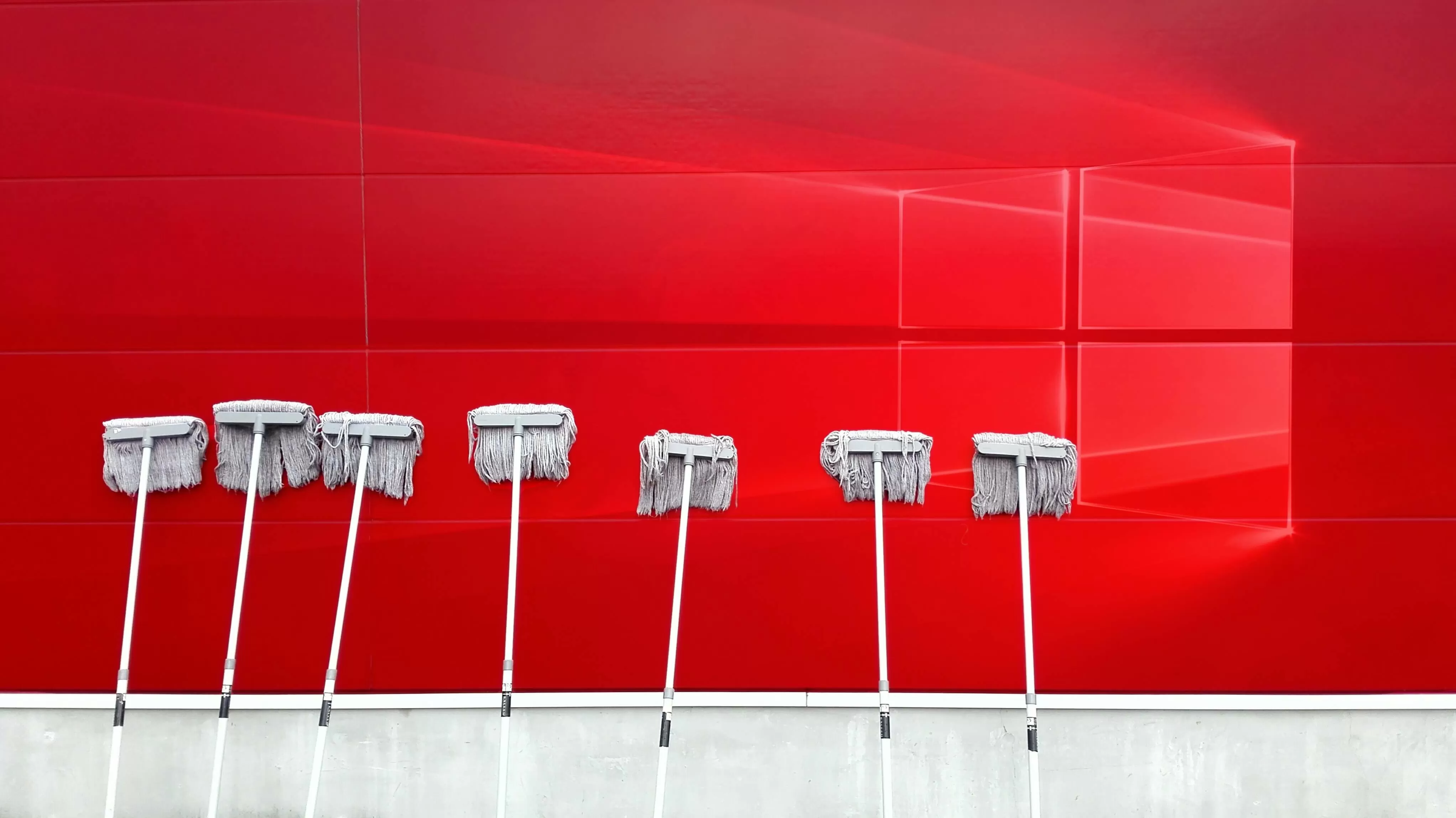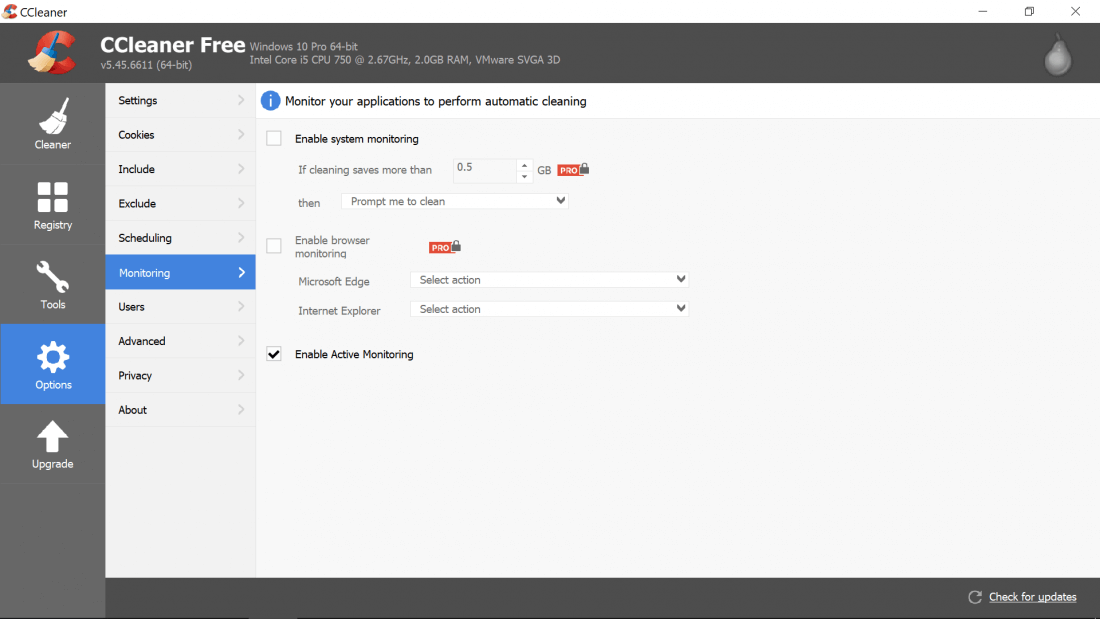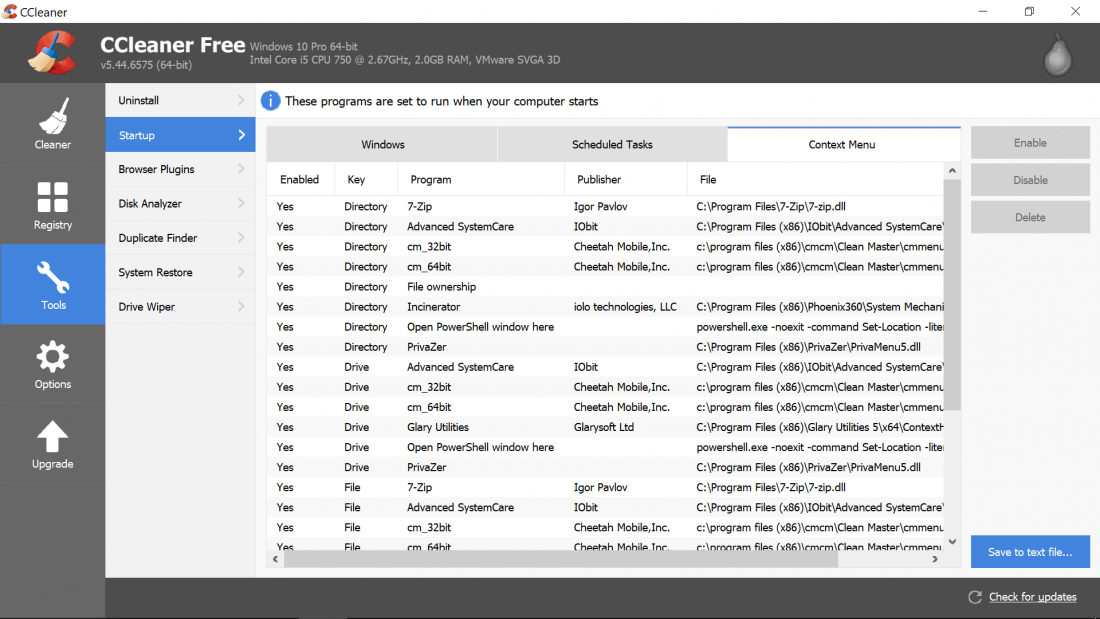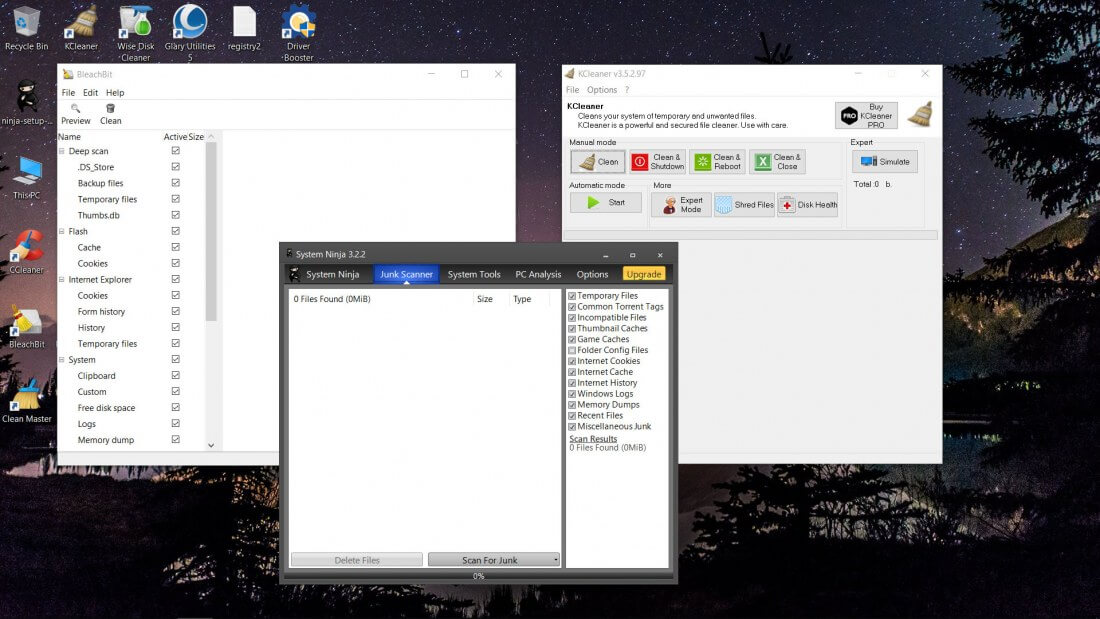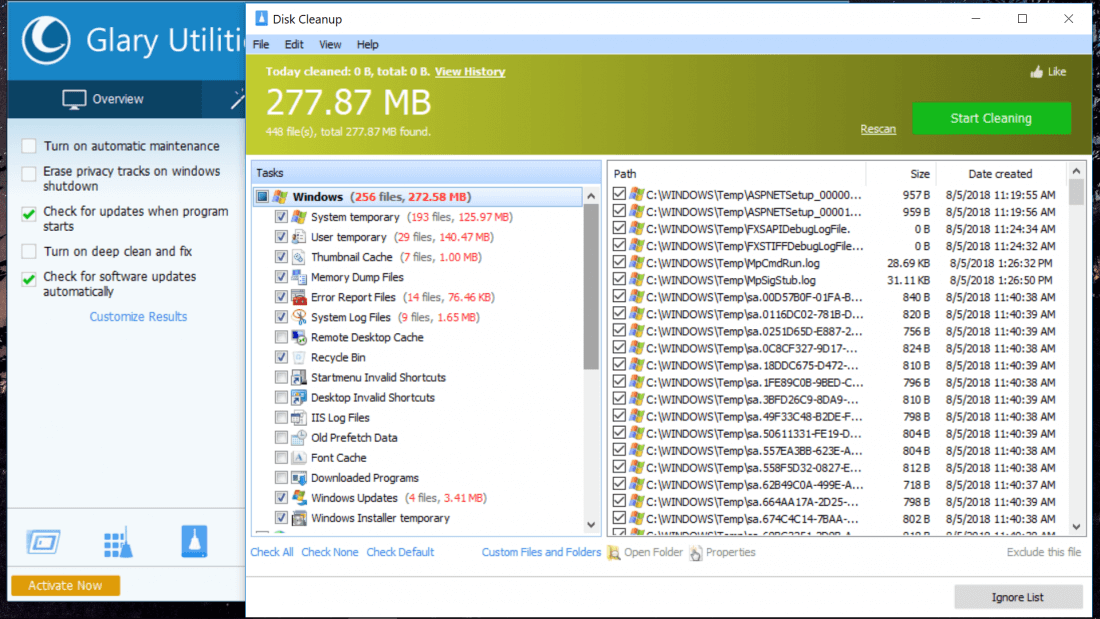For a long time CCleaner has been the most popular system-cleaning tool for Windows, extending its reach to other platforms like macOS and Android phones. However since security giant Avast acquired it last year, it's been a stormy ride that's had many doubting how effective or trustworthy the tool really is.
While CCleaner has certainly grown up since its "crap cleaner" days, it's certainly gotten more bloated over the years as well. Going from 6MB in February 2016 to around 15MB around its v5.41.x release in March this year.
You may recall last summer (two months after being acquired by Avast), it was disclosed that the tool had been infected with Floxif malware. Nevertheless, to be fair, this has happened to many other developers, big and small. On the other hand, users had long been complaining about bundled software and popup ads appearing in the utility. Most recently, just last month, the company was forced to pull the latest update following an outcry over privacy issues and obscure tactics to keep the utility running in the background.
But does that make CCleaner a bad application that should be frowned upon?
Developer Piriform retracted CCleaner's last update due to the controversy, so if you are running v5.44 of the software, now listed as the most recent version on the developer's site and TechSpot's download section, the above should be a non-issue. The developer is also promising more transparency in the next release of CCleaner, so you have better control over data and what the utility is gathering.
With that said, if you have been looking for a new junk file cleaner / all-in-one Windows optimizer, we've tested the best alternatives we could find...
CCleaner Alternatives We Tested
Before we get to the alternatives, it's worth noting that there's always the mindset that any junk file scanner is redundant with Windows' built-in Disk Cleanup tool along with the ability to manually delete unwanted data, but in our experience CCleaner-style programs make it easier to perform a system-wide file cleanup and they can be useful for freeing up storage on low capacity SSDs, for instance, where a few extra gigs can make or break the performance of your Windows installation.
Likewise, although CCleaner-esque utilities commonly have extra tools besides a file cleaner, such as the ability to manage your startup applications or uninstall software from Windows, these features are already well covered by the operating system and will be given minimal regard throughout our picks.
However, we've also included all-in-one style utilities for those who prefer the extra features, which aren't always available through Windows, such as a duplicate file finder or the ability to tweak context menu items. While none of the utilities we tested have the exact same options as CCleaner, many are close by overall feature count and they have their own perks.
Our recommendations below are listed from the most to least preferred as a direct replacement to CCleaner's junk file scanner with minimal regard to additional features, though we will mention some of those along the way.
We mostly took attributes into consideration such as ease of use, interface polish and simply how well the cleaners worked compared to CCleaner. All of the software was tested on a Windows 10 virtual machine that was reset to its default state.
Wise Disk Cleaner
Found 895MB + 625MB (1.52GB) - Separate numbers because there are two cleaners: "Common" (deletes temp files and browser history etc.) and "Advanced" (scans your drive for specific file types). Combined, they found the most files out of the scanners tested. Although Wise Disk Cleaner has a built-in disk defragmenter, scanning for junk files is the core feature.
If you'd prefer more of an all-in-one style utility, Wise Care 365 has additional features while the same company has other individual tools such as a driver manager.
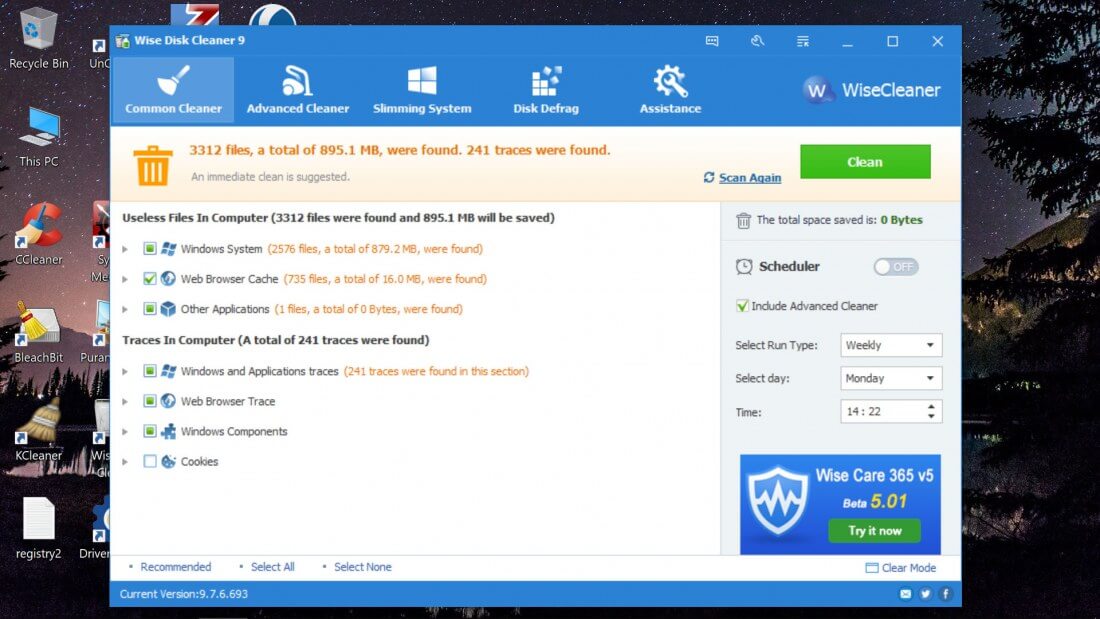
Clean Master
Found 1.4GB - Interface is easy to navigate. Options are presented clearly and junk files are organized in a way that is familiar to the native Windows file explorer. The free version includes a privacy scanner as well as a PC booster category with optimization options similar to Advanced SystemCare (an all-in-one tool that we discuss later), while the $30 Pro version of Clean Master includes file recovery and driver manager tools.

System Ninja
Found 844MB - More minimalist than Wise Disk Cleaner and Clean Master but not as barren as Bleachbit and KCleaner (coming up next). Although System Ninja includes a few extras such as a duplicate file finder and system specification details, it's mostly just a barebones junk file scanner but has a better interface and found more files than Bleachbit and KCleaner
Bleachbit
Found 229MB - The most barebones CCleaner-esque data scanner we tested. Didn't find as much junk as most of the other tools but it's highly regarded among those who appreciate its no-frills design and open source license.
KCleaner
Found 229MB - Has more of an interface than Bleachbit but is extremely dated. You must click expert mode to analyze and not clean. Shred files and disk health buttons launch to other utilities that must be downloaded and installed separately.
All-in-one tools with file cleaners
Advanced SystemCare (ASC)
Found 379MB - IObit bundles software and subscription prompts during the installation process and the software can be annoying with popups, but it has the most modern interface and diverse feature set out of the utilities we tested. The default scan removed 380MB worth of junk files on our system, which was about equal to CCleaner, though during a final scan toward the end CCleaner found 881MB (the difference seems to be that CCleaner selected C:\Windows\LiveKernelReports for deletion and ASC didn't, which is the case for most of the utilities we tested).
Other highlights include a CPU/RAM usage monitor that runs separate on your desktop, a built-in tool that "prevents malware from modifying DNS settings" and quick options to switch DNS providers (Google, Verizon, OpenDNS, Comodo, DNS Advantage). Although some features such as the driver scanner require you to install a separate utility (Driver Booster in this case), that tool is automatically downloaded, installed and launches from the same ASC window which serves as a hub for a host of IObit's tools.
Glary Utilities
Found 277MB - The Disk Cleaner in Glary has a similar interface to CCleaner in the way that information is presented and the way you interact with the software but its window has a fixed size and doesn't snap to the edges like a normal window. Glary's extras include an estimated Windows boot time on the main software window while the overall feature set present in Glary Utilites is also about equal with CCleaner (no context menu editor, but has duplicate file finder and some bonuses such as a malware scanner).
Other software tested but excluded: Puran (useful but dated), Ashampoo WinOptimizer (not very effective), JetClean (hasn't been updated for years), System Cleaner (also outdated), Privazer (less options for system files, more for web files), Uncleaner (super barebones), System Mechanic (autoscans on startup, email for activation).
